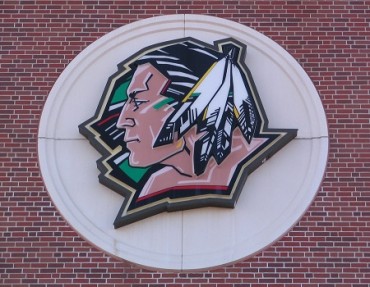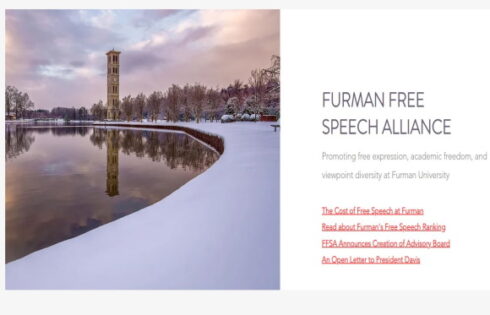
“The Fighting Sioux” is the nickname and logo of the University of North Dakota. It is also the source of a decade-long controversy.
The NCAA opposed the nickname on the grounds that it was offensive to Native Americans. In response, the state announced plans to officially drop the nickname. North Dakota legislators passed a law reinstating it, but eventually repealed the law. And then a statewide ballot initiative reversed the repeal.
Through it all, the Sioux tribe has maintained that it does not find the name offensive—and has granted permission for UND to keep it.
UND adopted “the Sioux” as its moniker in the early 1930s. For over 70 years, its teams proudly wore a logo bearing a Native American figure to honor the indigenous tribe with which the university shared a local history. And during this time, the Fighting Sioux’s men’s hockey team collected seven NCAA championships.
But in 2005, the NCAA threatened severe sanctions for 19 schools with Native American-related nicknames, logos, and mascots if they didn’t alter them. The reason? The NCAA considered the mascots abusive and offensive to American Indians. And any university that didn’t drop the nicknames would be banned from hosting post-season championships. Today, UND remains the only university that has not resolved the issue—in large part due to interference from legislators and citizens who are fans of the Fighting Sioux.
In April 2010, the North Dakota State Board of Higher Education announced that the 2010-2011 season would be the last one to feature the name. One year later, lawmakers voted to require UND to keep using the name and image of the Sioux. But when the NCAA refused to grant UND an exemption, they changed their minds and repealed the law.
Unfortunately for the NCAA, citizens of North Dakota proved to be even more passionate about the nickname. In February, a statewide petition drive restored the law requiring UND to keep the Fighting Sioux, despite NCAA sanctions.
The controversy has administrators at UND wondering what they should do.
“The thin line is that we have a state law right now which says that we have to be the Fighting Sioux and we have to use our Indian-head logo,” said Peter Johnson, UND director of media relations. “We also have an NCAA policy that says we can’t use the Fighting Sioux nickname or logo, and that we can’t participate in postseason play and use that nickname and logo. So that’s a bit of a rock and a hard place.”
The Board of Higher Education responded to the petition by suing the Secretary of State, Al Jaeger, in an attempt to keep the vote off the ballot in June. This move outraged the chairman of the referendum campaign, Reed Soderstrom.
“I believe the powers reserved for the people are sovereign, second only to the sovereignty of the creator, i.e. ‘natural law,’” he said. “Having said that, I believe the Board of Higher Education has overplayed its hand and likely antagonized many voters and many legislators.”
Soderstrom has consistently cited a Sioux ceremony that took place in 1969 and granted the University of North Dakota infinite permission to use the nickname. In 2010, the Spirit Lake Sioux Tribe reiterated its consent, but the Standing Rock Sioux Tribe decided not to put the matter to a vote. Soderstrom believes that if members were allowed to vote, the tribe would approve the nickname 2-1.
In the midst of the legal proceedings, North Dakota’s women’s hockey team had its best season in program history with its first NCAA tournament berth. Before the tournament began, the NCAA sent a letter to the university threatening forfeiture if they wore uniforms that featured the offensive nickname or logo. The team obliged by wearing uniforms that didn’t relate to the Fighting Sioux.
Frank Black Cloud of the Spirit Lake Sioux Tribe has grown tired of the on-going battles in the courts and legislature over a nickname that isn’t offensive.
“Honor, respect tradition, culture and pride,” he said. “How can those values be considered hostile and abusive?”
On March 15, lawyers, legislators, and members of the Spirit Lake Sioux will meet at the North Dakota Supreme Court and try to work out a solution. But until they do, the Fighting Sioux are still stuck between a rock and a hard place.
Fix Contributor Blake Baxter is a student at Eureka College.
Like The College Fix on Facebook.




Please join the conversation about our stories on Facebook, Twitter, Instagram, Reddit, MeWe, Rumble, Gab, Minds and Gettr.